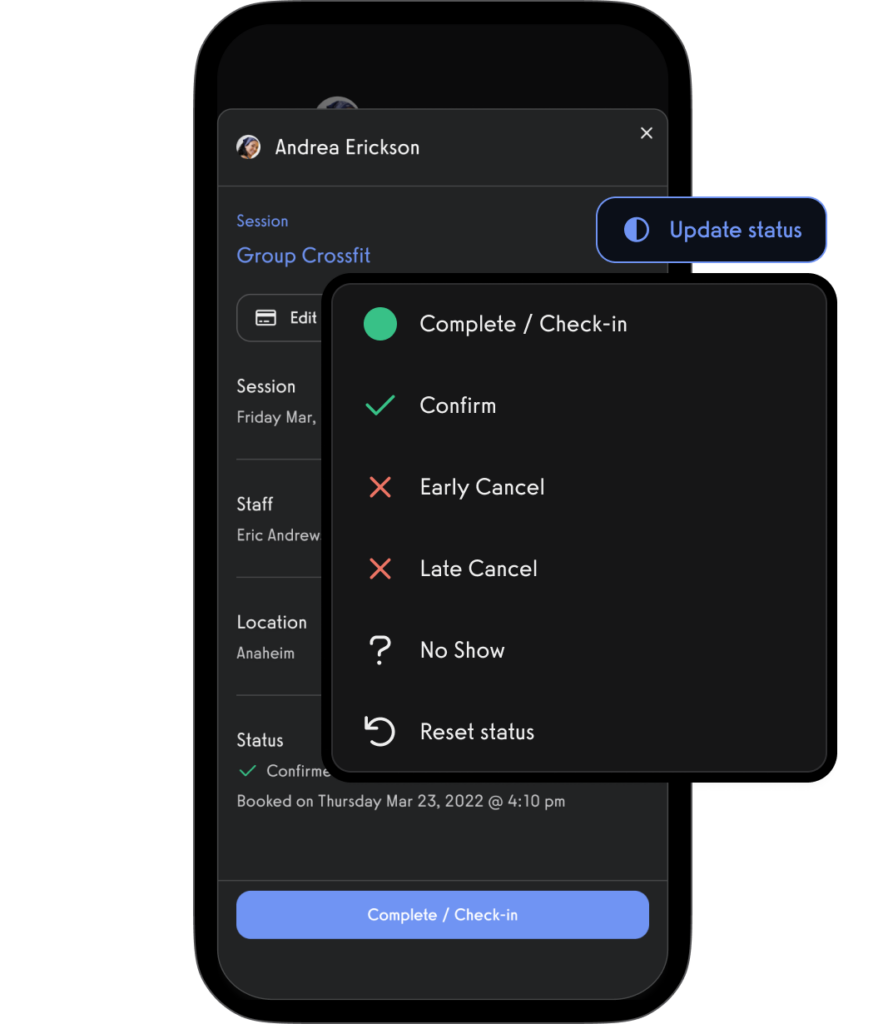How much does a martial arts instructor make?
A martial arts instructor can earn an average salary ranging from $30,000 to $50,000 per year, depending on several factors like geographic location, experience, and type of martial arts school.

This average martial arts instructor salary range of $30,000 to $50,000 per year highlights the variability in earning potential within the industry, making it essential for instructors to understand how different variables can affect their income. Learn just how much do karate instructors make after all is said and done.
| Category | Salary | Details |
|---|---|---|
| Hourly Rate | $15 – $30 | Varies based on experience and location. |
| Monthly Salary | $2,500 – $4,166 | Based on full-time employment averaging 40 hours/week. |
| Annual Salary | $30,000 – $50,000 | Standard yearly earnings for full-time instructors. |
| By Location | ||
| – Urban Areas | $35,000 – $55,000 | Higher cost of living and larger client base. |
| – Rural Areas | $25,000 – $40,000 | Lower cost of living and smaller client base. |
| By Experience | ||
| – Beginner (0-2 years) | $25,000 – $35,000 | Starting phase, developing client base. |
| – Intermediate (3-5 years) | $35,000 – $45,000 | Established with growing reputation. |
| – Experienced (6+ years) | $45,000 – $70,000+ | Highly skilled, possibly owning a studio. |
Notes on Data Points
- Hourly Rate: Reflects part-time or sessional work which might not include benefits or consistent hours.
- Monthly and Annual Salaries: Assume a steady position in a single martial arts school. Fluctuations can occur based on school size, profitability, and additional roles undertaken by the instructor.
- Location Differences: Salaries in urban areas are typically higher due to increased demand and higher living costs, whereas rural areas might offer lower salary ranges due to fewer opportunities and lower operational costs.
- Experience Levels: As instructors gain experience and credentials, their potential to earn a higher income increases, especially if they move towards running their own school or taking on specialized classes that can command higher fees.
This table serves as a guideline to help prospective and current martial arts instructors understand the potential financial outcomes of their career choices.
Efficient karate business management tools like those provided by Exercise.com can significantly impact these figures by helping instructors streamline their operations, extend their reach through online classes, and effectively manage client relationships and finances.
There are lots of different ways to make money with martial arts but choosing the best martial arts software is key. You can learn how to create a martial arts app, learn how to start an online martial arts training business, or learn how to start a martial arts business like a traditional martial arts school, and more.
By maximizing the efficiency of business operations, instructors can focus more on what they do best — teaching martial arts — and less on administrative tasks, thereby potentially increasing their earnings. Consider booking a demo with Exercise.com to explore how it can enhance your martial arts teaching career.

Average Martial Arts Instructor Hourly Rates by State
Martial arts instructors across the United States can expect varying compensation based on their location. This table provides a comprehensive overview of the average hourly rates for martial arts instructors in each state, along with the corresponding monthly and annual salary equivalents. These variations reflect the cost of living, demand for martial arts training, and regional economic conditions. Such insights can be crucial for instructors considering where to establish their careers or expand their business.
| State | Average Hourly Rate | Monthly Salary | Annual Salary |
|---|---|---|---|
| Alabama | $18.50 | $3,208 | $38,496 |
| Alaska | $22.00 | $3,813 | $45,756 |
| Arizona | $20.50 | $3,553 | $42,636 |
| Arkansas | $17.00 | $2,946 | $35,352 |
| California | $26.00 | $4,507 | $54,084 |
| Colorado | $21.00 | $3,640 | $43,680 |
| Connecticut | $24.50 | $4,248 | $50,976 |
| Delaware | $19.00 | $3,293 | $39,516 |
| Florida | $19.50 | $3,383 | $40,596 |
| Georgia | $20.00 | $3,467 | $41,604 |
| Hawaii | $23.00 | $3,987 | $47,844 |
| Idaho | $18.00 | $3,120 | $37,440 |
| Illinois | $22.50 | $3,900 | $46,800 |
| Indiana | $19.00 | $3,293 | $39,516 |
| Iowa | $18.50 | $3,208 | $38,496 |
| Kansas | $18.00 | $3,120 | $37,440 |
| Kentucky | $17.50 | $3,035 | $36,420 |
| Louisiana | $17.50 | $3,035 | $36,420 |
| Maine | $19.00 | $3,293 | $39,516 |
| Maryland | $23.50 | $4,075 | $48,900 |
| Massachusetts | $25.00 | $4,333 | $52,000 |
| Michigan | $20.00 | $3,467 | $41,604 |
| Minnesota | $21.50 | $3,727 | $44,724 |
| Mississippi | $16.50 | $2,860 | $34,320 |
| Missouri | $19.50 | $3,383 | $40,596 |
| Montana | $18.50 | $3,208 | $38,496 |
| Nebraska | $18.00 | $3,120 | $37,440 |
| Nevada | $21.00 | $3,640 | $43,680 |
| New Hampshire | $20.50 | $3,553 | $42,636 |
| New Jersey | $24.00 | $4,160 | $49,920 |
| New Mexico | $18.50 | $3,208 | $38,496 |
| New York | $25.00 | $4,333 | $52,000 |
| North Carolina | $19.00 | $3,293 | $39,516 |
| North Dakota | $18.00 | $3,120 | $37,440 |
| Ohio | $20.00 | $3,467 | $41,604 |
| Oklahoma | $17.00 | $2,946 | $35,352 |
| Oregon | $22.50 | $3,900 | $46,800 |
| Pennsylvania | $21.00 | $3,640 | $43,680 |
| Rhode Island | $23.00 | $3,987 | $47,844 |
| South Carolina | $18.00 | $3,120 | $37,440 |
| South Dakota | $17.50 | $3,035 | $36,420 |
| Tennessee | $18.50 | $3,208 | $38,496 |
| Texas | $21.50 | $3,727 | $44,724 |
| Utah | $19.50 | $3,383 | $40,596 |
| Vermont | $19.00 | $3,293 | $39,516 |
| Virginia | $21.00 | $3,640 | $43,680 |
| Washington | $24.00 | $4,160 | $49,920 |
| West Virginia | $16.50 | $2,860 | $34,320 |
| Wisconsin | $20.50 | $3,553 | $42,636 |
| Wyoming | $18.00 | $3,120 | $37,440 |
This table serves as a valuable resource for current and aspiring martial arts instructors to understand the potential earnings in their state and manage their career expectations accordingly. It also highlights the importance of strategic location choice in maximizing earning potential. Using management software like Exercise.com can further enhance instructors’ ability to earn more by efficiently managing their schedules, payments, and client communication. If you’re a martial arts instructor looking to optimize your career earnings, consider exploring how Exercise.com can help you achieve your financial goals.
Factors Influencing a Martial Arts Instructor’s Income
Martial arts instructors’ earnings are influenced by a variety of factors:
- Experience and Expertise: More experienced instructors or those with high-level competition backgrounds often command higher salaries.
- Location: Instructors in urban areas or affluent neighborhoods typically earn more due to higher class rates and larger potential client bases.
- Type of Employment: Instructors can work as employees, independent contractors, or own their studios. Each has different earning potentials and benefits.
- Number of Classes Taught: Instructors paid per class or hour may earn more by teaching multiple classes or private sessions.
- Additional Roles: Instructors who also take on managerial duties or other roles within a school may earn additional income.
Leveraging a comprehensive platform like Exercise.com can help instructors manage their classes and payments more efficiently, potentially increasing their earnings by reaching more students and improving retention rates.
Maximizing Martial Arts Instructor Earnings
Instructors looking to maximize their earnings can benefit significantly from using Exercise.com:
- Broader Reach: By offering online classes or on-demand video content through Exercise.com, instructors can reach a wider audience beyond their local area.
- Efficient Scheduling and Billing: The platform automates scheduling and billing, reducing administrative overhead and allowing instructors to focus more on teaching.
- Client Engagement Tools: Enhanced engagement through custom-branded apps and performance health software helps retain students and attract new ones.
- Business Insights: Detailed analytics on class attendance and revenue can help instructors make informed decisions about pricing and class offerings.
While the income of martial arts instructors varies, strategic use of resources like Exercise.com can help maximize potential earnings by streamlining operations and expanding client reach. For martial arts instructors looking to increase their impact and income, leveraging modern technology and effective business strategies is key. Whether you are a seasoned instructor or just starting out, book a demo with Exercise.com today to discover how the best martial arts software can enhance your teaching business and help you achieve your financial goals in the martial arts industry.

Run your martial arts business with powerful automations.

Book martial arts classes easily.

Check-in right from your own custom branded martial arts school app.

Plus, with a custom-branded gym app, you’ll elevate your martial arts gym’s branding and member experience.

You can even offer online martial arts classes, digital martial arts content, and other martial arts ecommerce solutions.

For martial arts instructors seeking to maximize their earnings and manage their business more efficiently, booking a demo with Exercise.com is a strategic move. The platform can help you explore new ways to grow your business within your specific martial arts discipline.

Average Martial Arts Instructor Salaries by Discipline
Here’s a detailed table that shows the average martial arts instructor salaries broken down by different types of martial arts, such as Taekwondo, Karate, Jiu-Jitsu, and others. These figures illustrate how the specific discipline taught can influence earning potential, reflecting market demand, the complexity of the martial art, and the instructor’s level of expertise within that discipline.
| Martial Art | Average Hourly Rate | Average Annual Salary | Details |
|---|---|---|---|
| Taekwondo | $15 – $25 | $30,000 – $40,000 | Popular in many regions; widely taught. |
| Karate | $15 – $30 | $32,000 – $50,000 | High demand in both children and adult training. |
| Jiu-Jitsu | $20 – $40 | $35,000 – $60,000 | Growing popularity, especially in urban areas. |
| Judo | $18 – $30 | $33,000 – $45,000 | Olympic sport with consistent demand. |
| Muay Thai | $20 – $35 | $34,000 – $52,000 | Known for its rigorous training regimen. |
| Kung Fu | $17 – $32 | $30,000 – $48,000 | Cultural heritage increases interest in some areas. |
| Aikido | $16 – $30 | $28,000 – $45,000 | Niche market with dedicated student base. |
| Krav Maga | $25 – $45 | $40,000 – $70,000 | High interest in self-defense increases demand. |
| Mixed Martial Arts (MMA) | $30 – $50 | $50,000 – $80,000 | High commercial appeal and professional opportunities. |
Analysis of Data Points
- Variability by Discipline: Salaries can vary significantly depending on the martial art taught. Disciplines with a higher commercial appeal or those that are part of competitive sports (like MMA or Judo) tend to offer higher earning potential due to larger class sizes and the ability to charge more per session.
- Influence of Geographic Location: Urban areas typically have higher salaries across all disciplines due to greater demand and the ability to attract more students.
- Experience and Expertise: Within each discipline, instructors with advanced skills, certifications, and competition experience can command higher wages. Reputation and branding in specific martial arts can also significantly affect earnings.
This breakdown helps instructors and school owners understand the potential financial outcomes of specializing in different martial arts disciplines. Leveraging a comprehensive platform like Exercise.com can further enhance an instructor’s ability to capitalize on their skills by providing tools for online class management, member engagement, and business analytics. These tools help instructors expand their reach and streamline operations, potentially increasing their income regardless of the discipline they teach.
Martial arts instructors’ salaries can vary significantly based on the discipline they teach, their location, level of experience, and the type of establishment they work for. Here’s a look at average salaries for various martial arts teaching positions, showcasing how compensation can range within the field.
| Position | Average Salary |
|---|---|
| Karate instructor salary | $40,000 |
| Karate sensei salary | $50,000 |
| Krav Maga instructor salary | $45,000 |
| Jiu Jitsu coach salary | $47,000 |
| MMA coach salary | $53,000 |
| Muay Thai instructor salary | $46,000 |
| Taekwondo instructor salary | $35,000 |
Salaries for martial arts instructors can reflect their expertise and the demand for different martial arts disciplines. For instance, an MMA trainer salary and MMA instructor salary tend to be on the higher end due to the popularity of MMA in the fitness industry. Conversely, a Taekwondo teacher salary and answers to questions like how much do Taekwondo instructors make or how much does a Taekwondo master make show a more moderate pay scale, reflecting both the widespread availability of Taekwondo and its appeal as a starting martial art for many.
Karate career opportunities are also lucrative, especially for those in higher-ranking positions like a Karate Sensei, where how much does a karate instructor make and how much does a karate sensei make can show a significant difference in compensation. Less commonly discussed roles such as how much does a kung fu instructor make also highlight the niche appeal and specialized nature of certain martial arts, which can affect salary ranges.
Understanding these salary dynamics can help prospective martial arts instructors set realistic career expectations and negotiate better compensation based on their skill level and market demand.
10 Ways to Make More Money as a Martial Arts Instructor
As a martial arts instructor, diversifying your income streams and optimizing your business strategies can significantly boost your earnings. Here are ten practical ways to increase your revenue, enhance your teaching career, and capitalize on opportunities within the martial arts industry. Utilizing a comprehensive platform like Exercise.com can help streamline these initiatives, making it easier to manage classes, track progress, and market your services effectively.
- Offer Private Lessons: Provide personalized one-on-one training sessions, which typically command higher fees than group classes.
- Specialize in Niche Markets: Focus on niche areas like self-defense for women, anti-bullying programs for kids, or adaptive martial arts for individuals with disabilities.
- Expand Online Classes: Utilize digital platforms to offer remote training sessions, allowing you to reach students beyond your local area.
- Host Workshops and Seminars: Organize special events focusing on specific skills or techniques, which can attract higher fees.
- Create and Sell Instructional Content: Produce videos, eBooks, or online courses on martial arts techniques, philosophy, or fitness routines.
- Develop a Martial Arts Blog or Vlog: Share your expertise online and monetize your content through advertising, sponsorships, or affiliate marketing.
- Sell Martial Arts Equipment and Apparel: Partner with manufacturers to sell gear and clothing, either online or directly from your training facility.
- Implement Tiered Pricing Models: Offer multiple membership levels or class packages, encouraging students to commit to more extensive and expensive programs.
- Run Intensive Bootcamps or Retreats: Organize intensive training sessions or retreats that provide immersive experiences at a premium price.
- Leverage Affiliate Programs: Recommend products or services related to martial arts and earn commissions on sales made through your referrals.
By adopting these strategies, martial arts instructors can diversify their income and maximize their earnings potential. Platforms like Exercise.com offer the tools necessary to efficiently manage these diversified activities, from scheduling and billing to creating custom-branded apps and online content. This not only helps in growing your income but also enhances your ability to provide value to your students.
If you are looking to expand your career as a martial arts instructor and increase your income, consider how Exercise.com can streamline your operations and support your growth. Book a demo with Exercise.com today and discover the possibilities to enhance your professional and financial trajectory in the martial arts industry.

How can I become a martial arts instructor?
To become a martial arts instructor, begin by training extensively in the martial arts style you wish to teach, achieving a high level of proficiency and often a black belt. Gain experience by assisting classes under a seasoned instructor, then complete any required instructor training or certification programs specific to your martial arts discipline. It’s also beneficial to learn about business management if you plan to open your own school.
What is the salary of a karate instructor?
The salary of a karate instructor in the United States varies widely based on location, experience, and the type of employment (e.g., self-employed vs. working for a dojo). On average, karate instructors can expect to make between $30,000 and $50,000 annually.
How much does a professional martial artist make?
A professional martial artist’s earnings can vary dramatically. Instructors or school owners might earn from $30,000 to over $100,000 annually, depending on the size and success of their schools. Competitors in high-profile sports like MMA can earn millions, but this is less common.
What is a martial arts trainer called?
A martial arts trainer is typically called a “Sensei” in Japanese disciplines like karate and judo, “Sifu” in Chinese martial arts like kung fu, and “Coach” or “Instructor” in more Western forms like MMA.
How many years does it take to learn martial arts?
The time it takes to learn martial arts to a high level of proficiency typically ranges from 5 to 10 years. The duration can vary based on the martial art, the intensity and frequency of training, and the individual’s learning pace.
Can you have a career in martial arts?
Yes, you can have a career in martial arts in several ways, such as teaching, opening a martial arts school, competing professionally, or working in related fields such as fitness training or stunt work in the entertainment industry.
Can you make a living off karate?
Yes, making a living off karate is possible by teaching classes, running a dojo, or competing. Additional income can be earned through private lessons, seminars, and selling karate-related merchandise.
How much does a karate teacher earn in the USA?
A karate teacher in the USA can earn anywhere from $25,000 to $50,000 annually, depending on factors like geographic location, the size and success of their dojo, and whether they operate their own business or work for another school.
How much money can you make from karate?
The amount of money you can make from karate depends largely on your role within the martial arts community. School owners and high-level instructors can earn significantly more through classes, private sessions, and merchandising than lower-level instructors.
How much do boxers make?
Boxers’ earnings vary widely; amateur boxers might earn little to no money, while professional boxers can make anywhere from a few thousand dollars per fight to millions for high-profile bouts. Earnings are influenced by the level of competition, popularity, and the ability to secure lucrative fights and sponsorships.
How do you become a master martial artist?
Becoming a master martial artist involves years of dedicated practice, studying under experienced instructors, and often teaching others. Mastery is typically marked by achieving high-level black belts or equivalent ranks and contributing to the martial arts community through leadership and innovation.
Can you make a living as an MMA fighter?
Yes, it is possible to make a living as an MMA fighter, but earnings can be highly variable. While top fighters in major organizations like UFC can earn substantial sums, fighters in smaller promotions might only make modest amounts from fights and need to supplement their income with other activities such as coaching.
How to teach martial arts?
To teach martial arts effectively, develop a deep understanding of your art, its principles, and techniques. Gain certifications if available, and improve your communication and motivational skills. Structure classes that cater to different skill levels and continuously assess and adapt to the needs of your students.
Do you need a license to teach martial arts?
Whether you need a license to teach martial arts depends on local regulations. Some places may require a business license, a specific teaching certification, or no formal permissions at all. Always check with local authorities to ensure compliance.
How do I start a martial arts class?
Start a martial arts class by securing a suitable space, obtaining necessary equipment, and defining your class structure and curriculum. Market your classes to attract students through online platforms, community bulletin boards, and local events.
How do I start a martial arts business?
Starting a martial arts business involves researching your market, securing a location, purchasing equipment, and obtaining any necessary licenses. Develop a comprehensive business plan that includes your marketing strategy, class pricing, and financial projections.
Read More: How to Start a Martial Arts Business
How much does it cost to open a martial arts school?
Opening a martial arts school can vary widely in cost depending on several factors including location, size of the facility, type of martial arts taught, and the level of amenities provided. Here’s a general breakdown of the potential costs involved:
- Lease or Purchase Costs: Renting or purchasing space is likely your largest expense. Costs can range significantly based on location. Urban areas typically have higher rent than rural locations. Monthly rent for a modest space might start from $1,500 to over $5,000 in more expensive cities.
- Renovations and Equipment: Outfitting a dojo may include mats, punching bags, mirrors, office equipment, and a reception area. Initial equipment costs can range from $10,000 to $50,000, depending on the quality and quantity of equipment.
- Licensing and Permits: Depending on the location, you may need specific permits and licenses to operate a martial arts school. Costs can vary but generally are not overly expensive.
- Insurance: Liability insurance is crucial and can cost anywhere from $500 to $2,000 annually, depending on the coverage amounts and specific business needs.
- Marketing and Advertising: Initial marketing may include signage, promotional materials, and online advertising. Budgeting $1,000 to $5,000 would be wise for initial marketing efforts to attract students.
- Staff Salaries: If you plan to hire instructors or administrative help, this will be an ongoing cost. Salaries can vary widely depending on regional standards and the number of employees.
- Utilities and Miscellaneous: Don’t forget ongoing costs like utilities, cleaning, maintenance, and other miscellaneous expenses.
Example Start-up Cost Estimate:
- Lease: $3,000/month
- Equipment: $30,000
- Renovations: $20,000
- Licensing and permits: $500
- Insurance: $1,500/year
- Marketing: $3,000
- Utilities and miscellaneous: $500/month
Total Initial Cost: Approximately $60,000 – $80,000
This is a rough estimate and the actual costs could be lower or significantly higher based on your specific circumstances, location, and business model. Careful planning and budget management are key to successfully launching a martial arts school. Tools like Exercise.com can also help manage your martial arts school efficiently once it’s up and running, offering integrated solutions for scheduling, member management, and more.
Read More: How much does it cost to open a martial arts school?
How much does a martial arts school owner make?
A martial arts school owner can make from $30,000 to over $100,000 per year, depending upon key factors like school location, number of students, class pricing, and the owner’s business acumen.
Read More: How much does a martial arts school owner make?
What are some ways to make money with martial arts?
Ways to make money with martial arts include teaching classes, private coaching, running seminars, selling merchandise, creating online content, and hosting events or competitions. Diversifying your income streams can significantly enhance your earnings.
Read More: Ways to Make Money with Martial Arts
What is the best martial arts software?
The best martial arts software provides comprehensive tools for managing your school, including student registration, class scheduling, billing, and communications. Exercise.com is highly recommended for its robust features tailored to the needs of martial arts schools, helping owners streamline operations and enhance student engagement.











